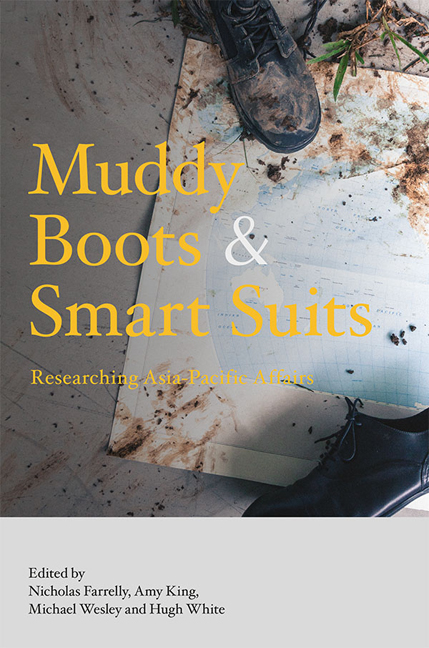Book contents
- Frontmatter
- Contents
- About the Contributors
- 1 Introduction to Research in Asia-Pacific Affairs
- Section I In the Field
- Section II Analysing Politics
- Section III Shaping a Region
- 7 History, Conflict, and Contexts: Remembering World War II in Asia
- 8 Regionalism and Global Powers
- Section IV Conflict and Order
- Section V Policy and Practice
- Bibliography
- Index
7 - History, Conflict, and Contexts: Remembering World War II in Asia
from Section III - Shaping a Region
Published online by Cambridge University Press: 12 January 2018
- Frontmatter
- Contents
- About the Contributors
- 1 Introduction to Research in Asia-Pacific Affairs
- Section I In the Field
- Section II Analysing Politics
- Section III Shaping a Region
- 7 History, Conflict, and Contexts: Remembering World War II in Asia
- 8 Regionalism and Global Powers
- Section IV Conflict and Order
- Section V Policy and Practice
- Bibliography
- Index
Summary
I have dreamed in my life, dreams that have stayed with me ever after, and changed my ideas; they have gone through and through me, like wine through water, and altered the colour of my mind.
—Emily Brontë (1818–48)As in Emily Brontë's dreams, war has flowed through Asia in the past century like wine through water. Be they interstate conflicts, intercommunal violence, social revolutions, or struggles for sovereignty, wars have transformed political structures, changed territorial boundaries, and reshaped the regional order. In particular, World War II, which strides the twentieth century like some malignant colossus, had a profound impact on the region. Estimates of its human cost vary, but it probably caused at least twenty-three million deaths in the Asia-Pacific (Wikipedia 2015a).2 Politically, it shattered the hold of the European powers on their colonial subjects, triggered the wave of post-war decolonization, and established the bipolar balance which dominated international and regional relations for almost fifty years.
In a less tangible but equally important sense, World War II and other violent conflicts transformed the cultural imaginations of the peoples and societies of the region. Not only did the defeat of the European powers in 1941–42 make a world beyond imperialism imaginable, but in recent decades, the memories of past wars have come to play a central role in the domestic politics and interstate relations of the region. Asia is not alone in this. The memory “boom” which has swept the globe since the 1970s or 1980s has seen a turn to the past in many countries. In both established and emerging states, war memory has become “a key element in the symbolic repertoire available to the nation-state for binding its citizens into a collective national identity” (Ashplant, Dawson, and Roper 2000, p. 7). Across the globe also, the politics of war memory have been used by various substate agents to justify their claims to greater recognition or compensation for past grievances and injustices.
- Type
- Chapter
- Information
- Muddy Boots and Smart SuitsResearching Asia-Pacific Affairs, pp. 95 - 109Publisher: ISEAS–Yusof Ishak InstitutePrint publication year: 2017

